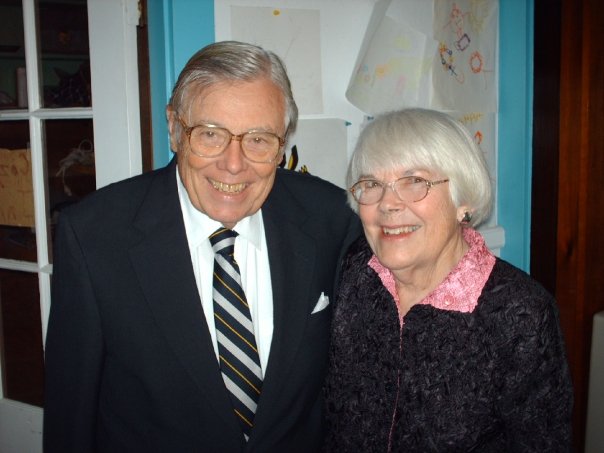The last time I visited my family home, my seven-year-old sister, Katie, and I spent a lot of time sitting together at the kitchen table, crayons in hand, doodling flowers, farm animals, and princesses. On one of my last days at home, at one such colouring session, Katie looked up at me and said, “I’m going to make a picture for you to take with you to Ireland. That way you can remember me when you’re gone.” I immediately assured Katie that I would always remember her, no matter how long it had been since I’d seen her last and that, in fact, I couldn’t forget her, even if I tried, because she was my beloved sister whom I carry with me in my heart wherever I go. She smiled, quickly reassured, but my heart broke just a little at the thought that this precious little sister of mine should already bear within her that existential fear we all carry: will anyone remember me when I’m gone? Am I even worth remembering, or will I soon be out of sight, out of mind, forgotten in the past?
In this month of November, we have had ample opportunities to reflect on what it means to remember those we have lost, whether it be to death or just to distance. Here at Clonard, we hosted two Remembrance Services in honor of those who have died within the last year in the parish and the Wexford Hospital, respectively. A committee of dedicated volunteers at Clonard organized the parish remembrance service, for which the Folk Group provided some music, and I was deeply impressed by the thoughtfulness and care that went into the crafting of the service. Over the course of the evening there was time for communal prayer and meditation on Scripture, but also for moments of intensely personal mourning for the individual families that have been bereaved in the last year. As two of the men in Folk Group played a hauntingly mournful tune on piano and low whistle, each of the deceased parishioner’s names was called, slowly and reverently, and each grieving family was given a chance to come up and light a candle for their beloved departed one from the Paschal candle and place it before the altar. In those moments of deeply personal grieving, the rest of the congregation simply sat and bore witness to that grief, offering silent support to these bereaved families as they took a moment to place their cherished memories and their deep sorrows into the loving hands of God.
Last week, Teach Bhride had the opportunity to sit on a wonderful two-day training session for those who work in bereavement support ministry. As we discussed different ways that people work through grief, the matter of storytelling came up often. If we think of the traditional wake or the modern practice among young people of posting messages on the Facebook pages of deceased friends, there is a common thread of that desire we feel when we have lost someone beloved to tell the story of that person’s life, to attempt to gather up all that this cherished soul was and meant to us and to the world. We know that a few words on a tombstone or a favorite memento left behind are just not enough to sum up all that our lost loved one truly was in his or her life. And so, we try to find ways to remember, to hold on to that life that was once so vibrant and now faces the danger of being forgotten, if we do not take care to hold it close in our memories.
When my grandfather died a few years ago, many of us were far from home and couldn’t make it back in time for the funeral, and so the family decided to hold a second memorial service for Grampa two months later, when everyone could be around. It was a simple day: his favorite passages from Scripture were read, his favorite hymns were sung, and his favorite foods were eaten by his favorite people as they gathered in one of his favorite places on earth: the church where he and my grandmother brought their six children up in the faith. That day, us kids heard stories from the older generations and learned things about Grampa that we’d never known. We saw photos of him as a young man and listened to my grandmother reminisce about their first date (she thought he was an awful bore at first; it didn’t take her long to realize what a tremendous man lay beneath the shy exterior). We shared stories of the times he’d made each one of us feel special and loved, even in the midst of a big, noisy family. We chuckled about the funny family memories and got choked up talking about how hard it would be not to have him to turn to anymore when we’re in trouble and could really use his great wisdom. In short, we remembered him.
For the Christian, though, there is hope of something much better than just remembering those whom we have loved and lost: there is hope of being with them again, more fully than ever before. When I look at one of Katie’s drawings, it’s almost like we’re back at our parents’ house, colouring together again. Almost, but not really; the best I can do is remember. When my grandmother recounts stories of her sixty-five year romance with my grandfather, it’s almost like he’s there, holding her hand and writing her love notes again. Almost, but not really; the best she can do is remember. And when grieving families light candles on the altar or place flowers on a tombstone, it’s almost like they can reach out and touch their beloved once more. Almost, but not really; the best they can do is remember. But when the priest lifts the bread and wine high and proclaims, “Do this in memory of me,” in our remembering of Christ, Christ Himself comes to dwell in our midst. The Eucharist is a reality, not just a memory. And it is through this same Christ that Christians can proclaim the very real hope that one day we will no longer have to hold fast to memories alone, for all that we long for will be given to us in full by the One who calls us home.



We shall all rise again, on the last day! Won’t it be amazing…. to meet all these people that have formed part of the landscape of our memory? Won’t that be one of the most jaw dropping of miracles?
All of these wonderful people are part of you, Mary! They continue to live in you, and that truth is even more significant than mere memory. Even the scientists have a take on it… you share a unique and indisputable DNA that links you to only one group of people. And yet we are all one!
Maybe as you walk around Wexford Town over the next week, as America moves toward Thanksgiving, all these remembrances will form the fabric of one of the best Thanksgivings you’ll ever experience!
With love and prayers from Steve and Michele